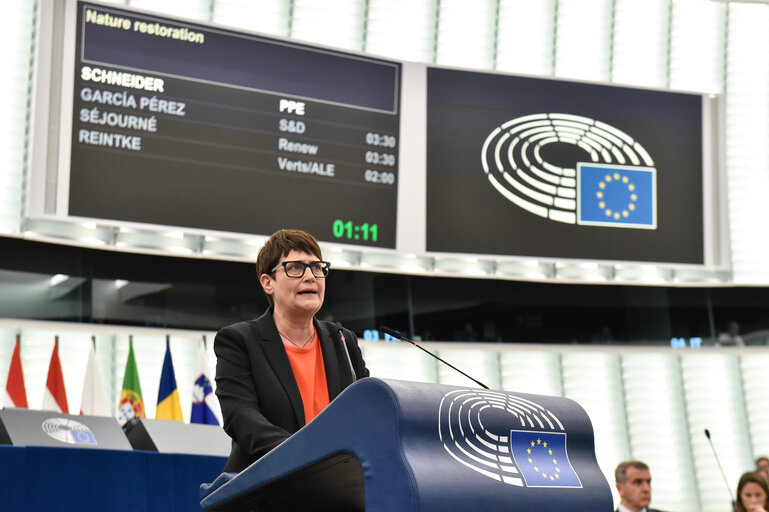The European Parliament has condemned Austria for keeping Romania and Bulgaria out of the Schengen Area.
The Schengen Area, or Schengen zone, is made up of 27 European countries that have officially abolished all passport and all other types of border control at their mutual borders.
On July 12, MEPs voted overwhelmingly in favour of a motion that demanded both countries be admitted into the zone by the end of this year.
The resolution was brought before the Parliament via a petition from Romanian citizens. This was backed up by another from Romanian MEPs, who got it through the Parliament’s committee on petitions before presenting it to the plenary session.
The last time the admittance of the two Balkan countries into the Schengen zone came up for debate was during a Council meeting in December 2022. While all other EU states were in favour, Austria vetoed the Eastern pair’s accession.
In the Council, Austria cited what it saw as the danger of unregistered asylum-seekers and migrants using the two countries as entry points into the EU. In response, the European Parliament referred to claims by the EU border agency Frontex, which has stated that few illegal migrants had used the countries as a route into the bloc.
The parliamentary resolution added that Bulgaria and Romania had long fulfilled all the necessary legal requirements to become part of the Schengen.
While the resolution is non-binding, commentators say it sends a strong political signal both to other European Union governments.
The resolution said Austria’s decision to veto was “motivated by national domestic political campaigns, rather than the actual accession criteria”.
Unlike the rest of the EU, goods and people crossing the borders of Romania and Bulgaria have to undergo checks. These can mean tourist travellers, professionals and those transporting goods can wait anywhere from a few hours to more than a day when trying to leave or enter the countries.
The resolution said that has caused enormous economic damage to the two countries, while Romanian media claims that Romanian and Bulgarian citizens are effectively “discriminated” against.
In addition to blocking the free movement of goods and services, there are claims the Schengen exclusion has caused environmental damage; due to the traffic jams that build up at the crossings, some 46,000 tonnes of carbon is unnecessarily released into the atmosphere on a regular basis.
The resolution also expressed concern that the Schengen Area veto has “had a devastating effect on public support for the EU” in the affected countries.
Although Romanian MEPs had declared the resolution a “victory” for their countrymen, Austrian MEPs were exasperated by what they saw as EU rhetoric.
One said that because the EU’s migration policy was too lax, Austria might have to take unilateral measures. “As long as the EU’s external borders are open, we have to stick to internal border controls,” said Harald Vilimsky of the nationalist FPÖ party.
Despite Austria’s apparent determination to keep its borders secure, leaked documents from the Austrian Government have been circulating on social media. Dated December 2022, they are said to show that Austria was, in fact, planning to admit the two countries into Schengen later this year.





